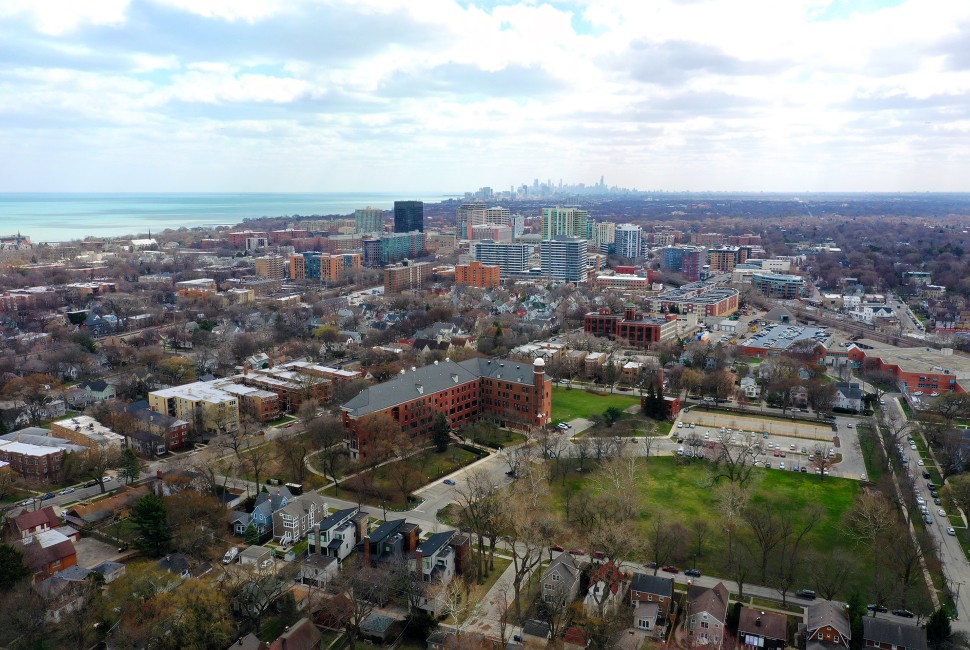A new survey conducted by Northwestern University's Center for the Study of Diversity and Democracy (CSDD) and in collaboration with NORC at the University of Chicago has revealed that the city of Evanston's historic reparations program garners widespread approval and support across every ethnic and racial demographic group within the city and across all nine of the city’s political wards.
In 2019, Evanston achieved a historic milestone by becoming the first city in the United States to enact a government-funded reparations program, aiming to address the historical injustices faced by Black residents. Since then, the city has sought to redress the harms caused by a pattern of housing discrimination and segregation that persisted between 1919 and 1969. The city’s reparations program has gained national and international attention as a bold and groundbreaking initiative.
In October 2022, Northwestern’s CSDD launched a research collaborative to conduct a yearlong study on the city of Evanston’s reparations program. As part of this study, a survey was implemented, which interviewed over 3,500 Evanston residents between February and June 2023.
The researchers have released topline data most relevant to showing how residents are viewing the reparations program as it was originally conceived. Key findings from the survey include:
- 70% of white respondents viewed the reparations program as "good public policy" for the city of Evanston. This is a significant finding, as previous surveys nationwide have never recorded more than 20% support among white Americans for reparations.
- 64% of Black respondents, 61% of Latino respondents, and 62% of Asian respondents also expressed support for the program.
- The Evanston City Council's decision to pass the reparations ordinance led to double-digit net increases in trust in city government across all nine of the city’s wards and among all ethnic and racial demographic groups.
- This survey, designed by CSDD and executed by NORC, represents a pioneering effort to collect feedback on an operational reparations program.
“The survey is the first feedback that we have on an operational reparations program, so it is incredibly important that the majority of opinion across racial groups views reparations positively,” said Tabitha Bonilla, director of the CSDD Poll and coauthor of the survey. “The data suggests that Evanston’s reparations program can be instructional for other municipalities and governments that wish to establish reparations programs.”
Alvin Tillery, director of the CSDD and a professor of political science at Northwestern University said, “The population of Evanston is highly educated and has been very engaged in conversations about racial equity over the past several years, so we expected to find more support for reparations here than we might see in other parts of the nation, but we are stunned that more than 60 percent of every ethnic and racial demographic group thinks the program is good public policy for the city.”
“These striking survey results demonstrate that when policymakers do the right thing and do so with transparency, moral clarity and public input, they can build public support even for very controversial ideas,” said Evanston Mayor Daniel Biss. “I hope they inspire public officials across the country to be bold and ambitious in pursuing justice.”
Vince Welch, associate director of NORC’s Center on Equity Research and Evanston resident, said, “NORC was thrilled to help the city of Evanston with such an important study. The use of inclusive and equitable research methods and meaningful community engagement ensured that all of the diverse voices of Evanston, across all wards, racial/ethnic groups and income levels were taken into consideration for how the city addresses racial equity.”
In November 2019, the Evanston City Council adopted Resolution 126-R-19, “Establishing the City of Evanston Reparations Fund and the Reparations Committee.” The resolution, introduced by Robin Rue Simmons, committed the first $10 million of the city’s Municipal Cannabis Retailers’ Occupation Tax (3% on gross sales of cannabis) to fund local reparations.
In March 2021, the first local reparations program passed, called the Restorative Housing Program (37-R-21), helping to redress the harms of a pattern of housing discrimination and segregation that persisted between 1919 and 1969. As of Aug. 16, 2023, the city had disbursed $1,092,924 in reparations funds through the Local Reparations Restorative Housing Program. Recently, the program has evolved by adding a real estate transfer tax to its revenue stream and allowing for cash payouts.
Funding for the survey was provided by the Lewis-Sebring Family Foundation.


